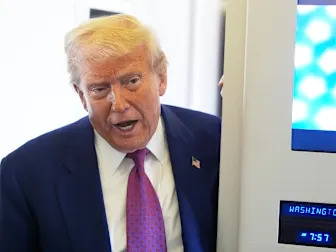The US and China agreed to a framework and implementation plan to ease trade tensions on Tuesday.
“We have reached a framework to implement the Geneva consensus,” US Commerce Secretary Howard Lutnick said.
The commerce secretary indicated that the deal should resolve issues between the two countries on rare earths and magnets. Representatives will now take the proposal to their respective leaders for approval.
The update comes after two days of trade talks between the US and China in London. The high-stakes negotiations follow Trump's call with Xi Jinping last week, which both leaders framed as positive.
US-China tensions have risen in the aftermath of the countries' trade truce reached in mid-May in Geneva, with both countries accusing the other of breaching that truce while ratcheting up pressure on other issues.
The US and China are also now using their control over certain key materials to gain control in the trade war. Bloomberg reported on Friday that the US dominates in exports of ethane, a gas used to make plastics, and China buys nearly all of it. Washington is now tightening control by requiring export licenses. China's curbs on exports of rare earth minerals, crucial for autos in particular, have drawn Washington's ire.
Read more: What Trump's tariffs mean for the economy and your wallet
The US-China talks come as Trump pushes countries to speed up negotiations. The US sent a letter to partners as a "friendly reminder" that Trump's self-imposed 90-day pause on sweeping "reciprocal" tariffs is set to expire in early July.
White House advisers have for weeks promised trade deals in the "not-too-distant future," with the only announced agreement so far coming with the United Kingdom. US and Indian officials held trade talks this week and agreed to extend those discussions on Monday and Tuesday ahead of the July 9 deadline.
New tariffs are coming into play: Effective Wednesday, June 4, Trump doubled tariffs on steel and aluminum from 25% to 50%.
Meanwhile, Trump's most sweeping tariffs face legal uncertainty after a federal appeals court allowed the tariffs to temporarily stay in effect, a day after the US Court of International Trade blocked their implementation , deeming the method used to enact them "unlawful."
Here are the latest updates as the policy reverberates around the world.
LIVE 1136 updates

